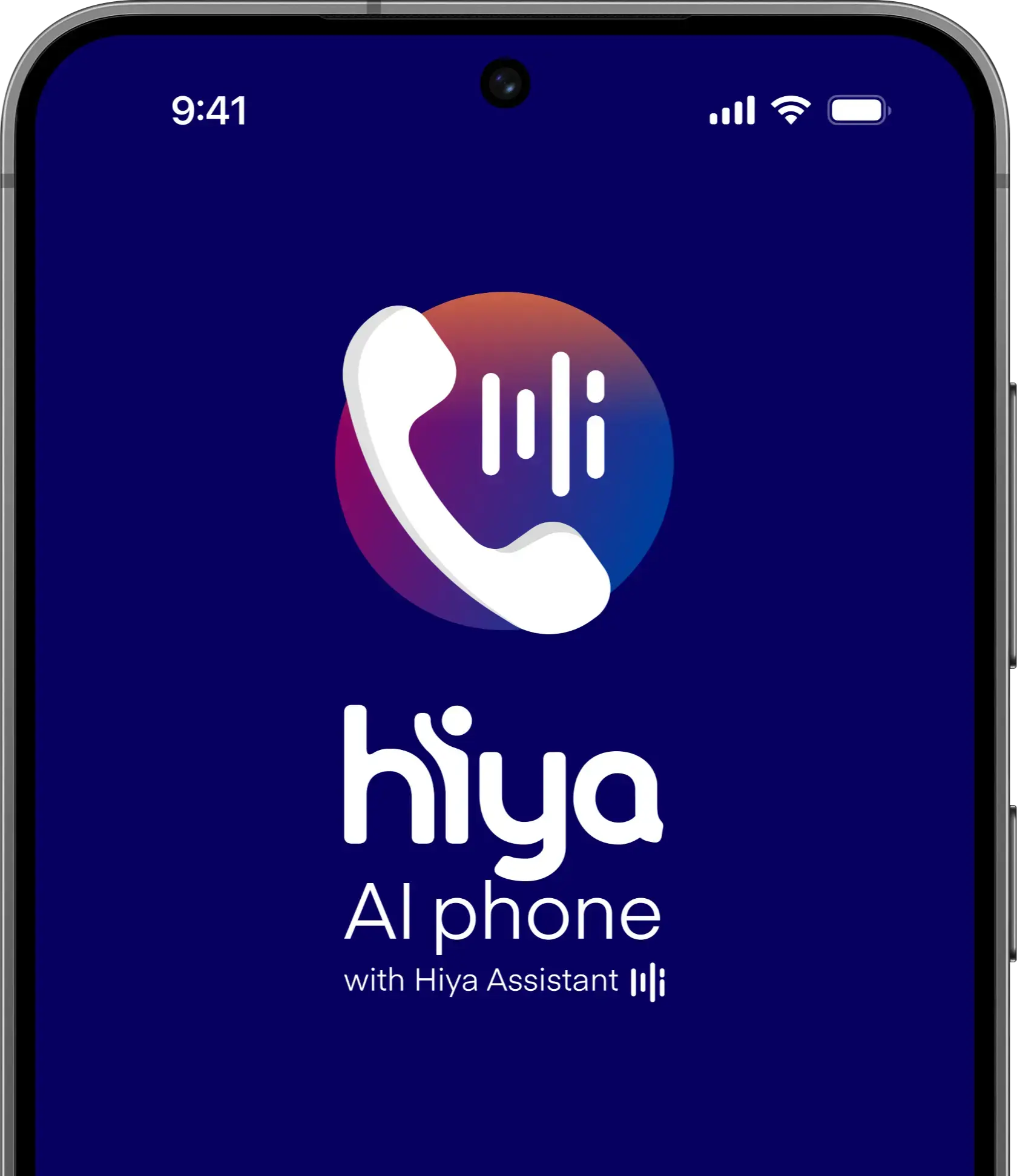
Phone scammers love to target vulnerable populations. And one of their favorite targets is immigrants. Immigrants are typically less familiar with how government officials operate in their new country and are often afraid of doing anything that might jeopardize their immigration status.
Earlier this year, we wrote about Chinese-language scams that target Chinese immigrants in Canada. Now, for our Scam of the Month series, we’re going to look at immigration scams in the U.S.
More than 40,000 calls each day
Hiya’s data shows that there were more than 3.6 million potential immigration scam calls over the past three months. That’s around 40,000 each day.
These were calls reported to Hiya that contained the words “immigration,” “Homeland Security” or “USCIS,” which is the United States Citizenship and Immigration Services, an agency of the Department of Homeland Security that processes immigration forms.

The graph above shows potential scam calls from phone numbers reported by Hiya users mentioning "immigration," "Homeland Security" or "USCIS." Calls averaged about 40,000 per day and hit a high of 72,202 on April 10, 2023.
Answered calls last around 10 minutes
“Call duration is significant because the longer a scammer has a potential victim on the phone, the more likely it is that the recipient will get scammed,” said Jonathan Nelson, Director of Product Management for Hiya Protect. For immigration scam calls that were answered by consumers in the past three months, the average call duration was around 10 minutes.
Jonathan shared that immigration scams are particularly insidious because they play on the fears of immigrants who are sometimes in desperate situations. That fear makes it more likely they would stay on the line and possibly be convinced by a scammer.
What Hiya users are reporting
There are a variety of immigration scams, targeting immigrants from many different countries. Below is a sampling of scam calls reported to Hiya. We receive thousands of user reports from consumers using Hiya’s spam and fraud protection on Samsung devices and the Hiya mobile app. When users receive unwanted calls, they can tap a prompt to report it as spam or fraud, and can include a comment if they choose to. Here is what users are reporting:
- “This automated call claims to be federal immigration/border control. The message is threatening, that I have been red flagged due to a package with my name on it.”
- “Says they were from immigration and I need to pay them money. It was a voice recording.”
- “Pretending to be Homeland Security to get social security number and extort money.”
- “Caller claims that he is from USCIS and says I have an issue with my alien registration.”
Scams targeting Asian immigrants
Just as we saw with the Chinese-language scams in Canada, there are several variations of scams targeting Asian immigrants in the U.S. Here is what U.S. users are reporting:
- “Starts with ‘welcome to immigration’ then starts talking in Chinese.”
- “Female robo voice allegedly from Immigration of Singapore informing me I have a document awaiting collection urgently.”
- “Claimed to be Hong Kong Immigration Department.”
- “Claims to be from immigration then changes to Mandarin.”
Scams targeting Spanish-speaking immigrants
There are also phone scams that target Spanish-speaking immigrants. Often, the scammers will place calls to area codes that are near the southern border of the U.S. to increase their chances of reaching immigrants.
In fact, last week the U.S. Federal Trade Commission issued an alert warning consumers about scams related to Title 42, which allowed the U.S. to turn away immigrants at the border to prevent the spread of the coronavirus. In the alert, the FTC cautioned:
“When there are big changes that lead to confusion, scammers prosper. So, as Title 42, the pandemic-era law related to immigration, expired last week, the resulting “what happens next” will almost certainly lead to notarios hoping to ride that question all the way to the bank.”
The FTC explains that in some countries, a notario público (notary public) can be someone who has extensive legal training. But in the United States, a notario público is merely a witness to the signing of official documents. They are not licensed attorneys and they can’t help speed up the immigration process — even though some might claim otherwise.
In another scam targeting Spanish speaking immigrants, in March the U.S. Department of Justice issued a press release: Eleventh Defendant Sentenced in $15 Million Scheme to Defraud Thousands of Spanish-Speaking United States Immigrants. This scam involved U.S. residents who conspired with a call center in Peru. The call center defrauded Spanish-speaking residents of the United States by threatening them with legal consequences if they did not pay for English-language learning products or pay “settlement fees.” The DOJ says more than 30,000 Spanish-speaking residents of the United States were defrauded.
How consumers can avoid immigration scams
The U.S. Department of Justice cautions immigrants that only an attorney or an accredited representative working for an organization recognized by the DOJ can give legal immigration advice. It maintains a state-by-state list of free or low-cost immigration attorneys. It also has a list of organizations and representatives recognized by the DOJ.
How carriers can fight back against immigration scams
The best way to fight back against immigration scam calls is to stop them before they reach consumers. Carriers can add Hiya Protect, a complete call protection solution that enables mobile network carriers to protect their subscribers by blocking fraud calls and labeling spam calls, and helping them discern wanted calls from unwanted calls. Using Adaptive AI technology, Hiya analyzes past and present call patterns and responds to new threats as they emerge.








